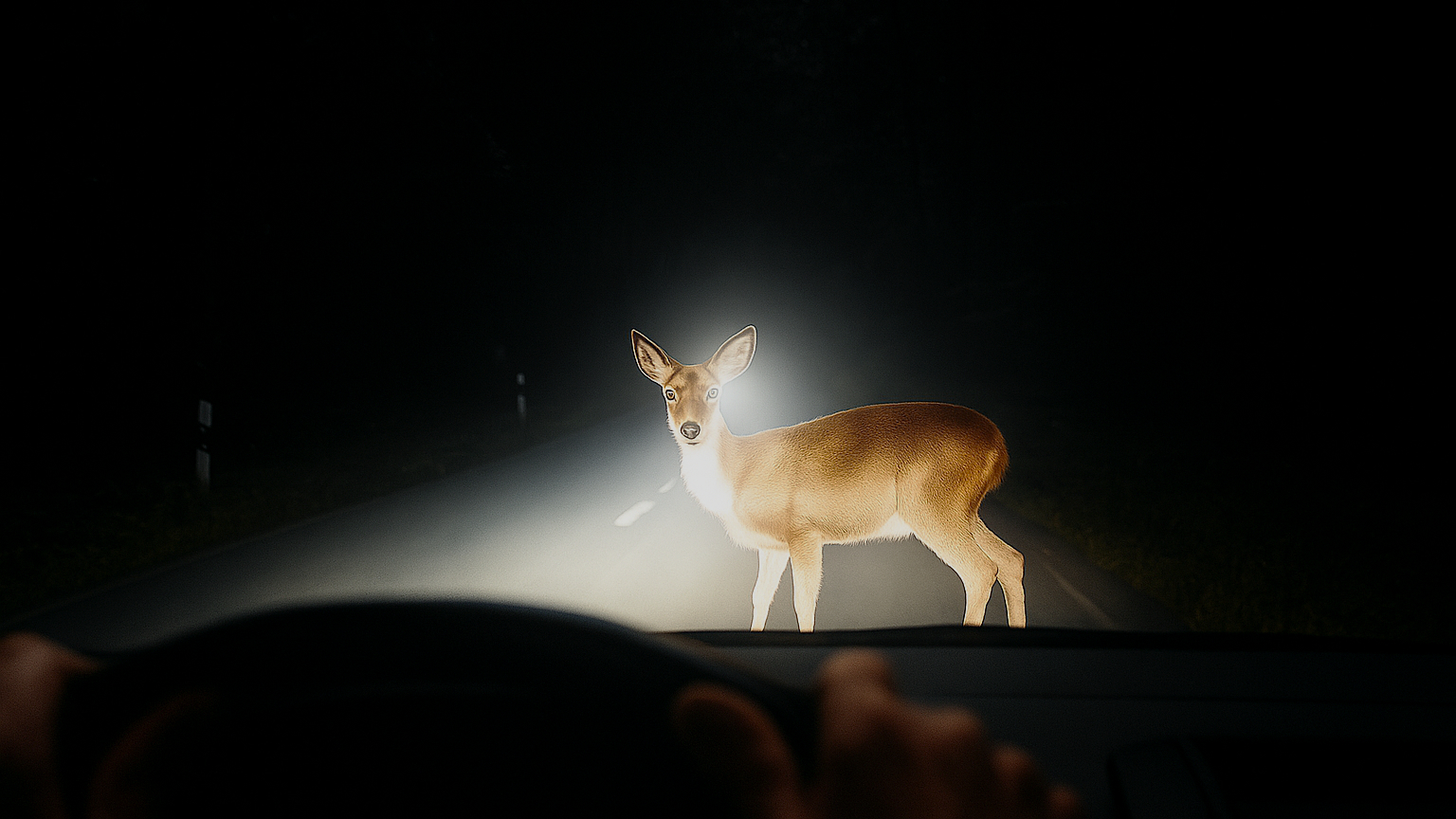
Wildlife Accident – What to Do After Hitting a Deer or Other Animal?
A moment of inattention, an animal jumps onto the road – and suddenly it's happened: a wildlife accident. Unfortunately, collisions with wild animals are not uncommon, especially in rural areas. In Germany, there are over 250,000 wildlife accidents every year – some of which result in significant property damage or personal injury.
But what should you do as a driver? Who pays in the event of an accident involving wildlife? And what role does your insurance play? In this blog post, we clarify all the important questions – in a practical, compact and up-to-date manner.
What Counts as an Accident Involving Wildlife?
An accident involving wildlife occurs when there is a collision with so-called game animals. These include, among others:
- Deer
- Wild boars
- Foxes
- Hares
- Badgers
🚫 The following are not considered wildlife accidents:Collisions with domestic animals (e.g., dogs, cats) or farm animals (e.g., cows, sheep). In such cases, the insurance company's wildlife accident policy does not apply.
Wildlife Accident – What to Do Immediately After the Accident?
Act quickly, but calmly. Here's how to proceed in an emergency:
- Stop & Secure: Switch on your hazard warning lights, put on your high-visibility vest, and set up a warning triangle.
- Call the Police: An accident involving wildlife must be reported! Always inform the police – even if the animal runs away. This is important for reporting the damage to your insurance company.
- No Contact with the Animal: Do not touch injured or dead animals. This can be dangerous – e.g. due to wildlife diseases or defensive behavior. Wait for the police or the responsible gamekeeper.
- Photos & Documentation: Take photos of the accident site, the animal (if possible), the damage to the vehicle, and any marks on the vehicle. This will help with the settlement later on.
- Obtain a Wildlife Accident Certificate: You can obtain this from the police or the hunting leaseholder – be sure to keep it, as it is necessary for the insurance company.
Do I Have to Report the Wildlife Accident to the Insurance Company?
Yes, and as soon as possible – ideally within 24 hours. At the latest, however, within the contractually agreed deadlines (usually 7 days).
Important: Without a police report and certificate, your insurance company may refuse to cover the damage.
Which Insurance Pays for Accidents Involving Wildlife?
That depends on your type of contract:
Partial Comprehensive Insurance:
Usually covers collisions with game animals in full, minus the deductible. However, damage caused by evasive maneuvers is not automatically covered – proof is required in this case.
Comprehensive Insurance:
Also covers damage caused by evasive maneuvers or if you hit a tree or guardrail, for example. Here, too, the deductible applies.
Liability Insurance:
Does not pay out, as no third party was harmed.
What Will I Be Reimbursed for in the Event of an Accident Involving Wildlife?
The amount of the reimbursement depends on the value of the vehicle and the damage:
- Repair costs (in the case of economical repair)
- Replacement value (minus residual value, in the case of a total loss)
- Expert costs, if commissioned by the insurance compan
💡 Tip: For older vehicles, it may be cheaper to have the damage paid out instead of repaired – depending on usage and condition.
What Happens in the Event of an Economic Total Loss?
If the repair would be more expensive than the replacement value, this is referred to as an economic total loss. In such cases, your insurance company will use service providers such as Copart.
How Does Copart Help with Wildlife Accidents?
Copart specializes in marketing the residual value of damaged vehicles – e.g., after an accident or wildlife damage. Insurance companies commission Copart to auction the damaged vehicle to repair shops, dealers, or recyclers via digital auctions.
What this means for you:
You receive the regulated amount from the insurance company, while Copart takes care of the quick and market-driven processing in the background – without any additional effort on your part.
🔗Search the vehicle inventory now or discover the auction calendar at Copart.
Conclusion: Wildlife Accidents – Quick Action Is Crucial
A wildlife accident can happen to anyone – even if you drive defensively. This makes it all the more important to stay calm and take the right steps:
- Secure the accident site
- Inform the police
- Obtain a wildlife accident certificate
- Document photos and information
- Report the accident to your insurance company as soon as possible
This will ensure that you do not encounter any problems with the settlement of claims afterwards. And if your vehicle is beyond repair, Copart will work with your insurance company to ensure professional disposal.
FAQs on Accidents Involving Wildlife
Do accidents involving wildlife have to be reported?
Yes, in all cases – even if the animal runs away. Call the police.
Which animals are considered “wild” by insurance companies?
Only game animals – e.g., deer, wild boars, foxes, hares. Pets are not included.
How quickly do I have to report an accident involving wildlife?
Immediately – preferably within 24 hours to the police and insurance company.
Does the insurance company pay for the entire damage?
Partial comprehensive insurance covers accidents involving wild animals – minus the deductible. Full comprehensive insurance also covers evasive maneuvers.
Who covers the costs?
The responsible insurance company, depending on the contract (partial comprehensive/full comprehensive).
How much money is paid out in the event of an accident involving wild animals?
That depends on the damage, the residual value, and the replacement value of your vehicle.